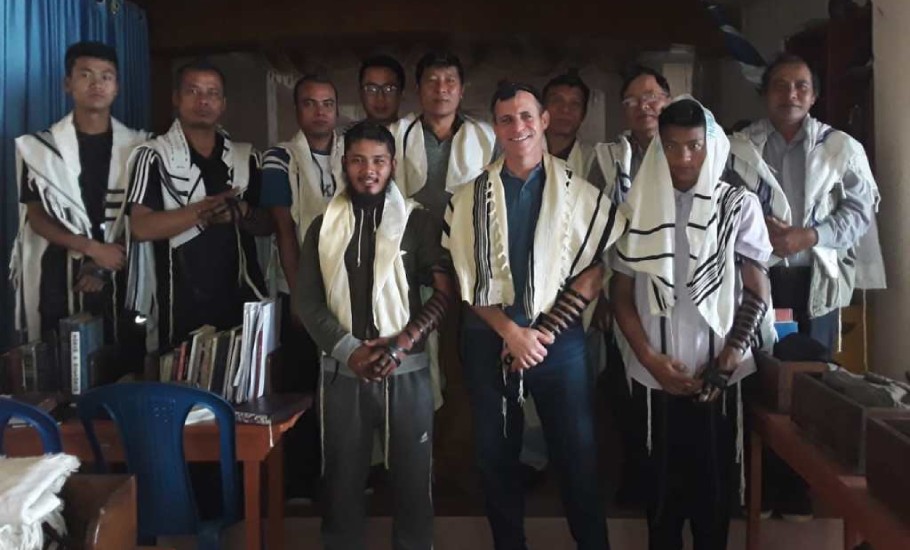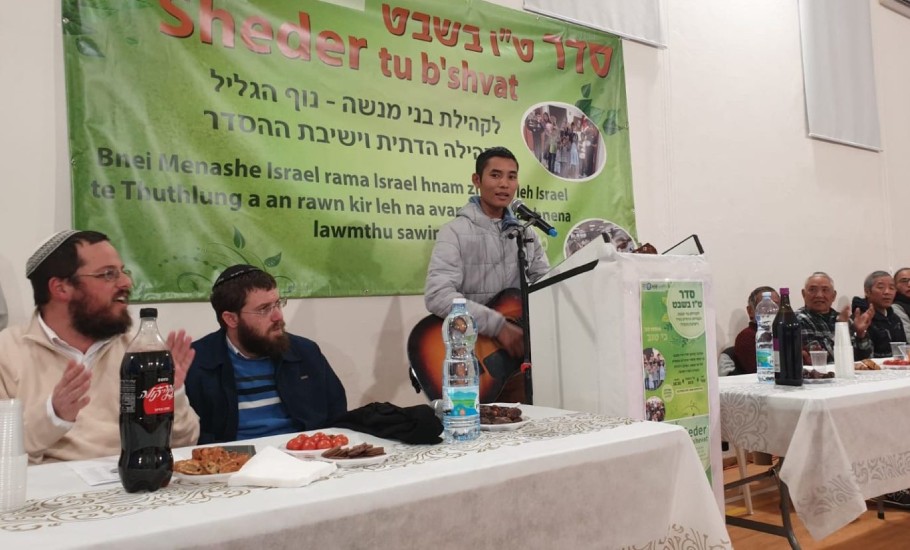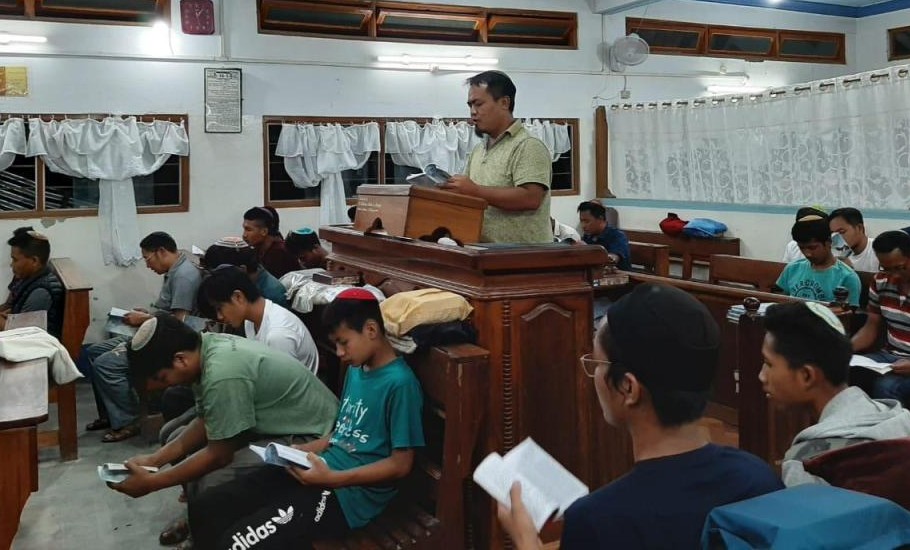
- Home
- India
- World
- Premium
- THE FEDERAL SPECIAL
- Analysis
- States
- Perspective
- Videos
- Sports
- Education
- Entertainment
- Elections
- Features
- Health
- Business
- Series
- In memoriam: Sheikh Mujibur Rahman
- Bishnoi's Men
- NEET TANGLE
- Economy Series
- Earth Day
- Kashmir’s Frozen Turbulence
- India@75
- The legend of Ramjanmabhoomi
- Liberalisation@30
- How to tame a dragon
- Celebrating biodiversity
- Farm Matters
- 50 days of solitude
- Bringing Migrants Home
- Budget 2020
- Jharkhand Votes
- The Federal Investigates
- The Federal Impact
- Vanishing Sand
- Gandhi @ 150
- Andhra Today
- Field report
- Operation Gulmarg
- Pandemic @1 Mn in India
- The Federal Year-End
- The Zero Year
- Science
- Brand studio
- Newsletter
- Elections 2024
- Events
- Home
- IndiaIndia
- World
- Analysis
- StatesStates
- PerspectivePerspective
- VideosVideos
- Sports
- Education
- Entertainment
- ElectionsElections
- Features
- Health
- BusinessBusiness
- Premium
- Loading...
Premium - Events

COVID-19: For Mizoram’s lost Jews, ‘promised land’ and kin seem farther away
In the wake of the pandemic and the ensuing financial hardship, Jewish organisations from Mexico, USA and Israel are sending aid to the Bnei Menashe community in Mizoram and Manipur.

Jeremia Hnamte and his wife live in Zuangtui locality of Aizawl but their heart, soul and mind are in Israel. Jeremia spends hours on video calls and WhatsApp chat to remain connected with his daughter, mother and siblings, all of whom have long migrated to Israel to revive what they perceive as their umbilical link with the “holy land” that was snapped even before Jesus Christ...
Jeremia Hnamte and his wife live in Zuangtui locality of Aizawl but their heart, soul and mind are in Israel. Jeremia spends hours on video calls and WhatsApp chat to remain connected with his daughter, mother and siblings, all of whom have long migrated to Israel to revive what they perceive as their umbilical link with the “holy land” that was snapped even before Jesus Christ was born.
According to Jeremia, things looked quite grim in April as his relatives kept him posted about the rising COVID-19 cases in Israel. The number of new cases in this West Asian country then dipped and the curve had almost flattened in May, but it has started to rise again from June.
In Mizoram, like the other north-eastern states which were by and large insulated from the deadly virus till a month ago, it is now spreading its tentacles. The latest tally put the number of positive cases in the state at 101 as of June 11.
To stem further spread of the virus, the state government last week extended the “total lockdown” until June 22. Chief Minister Zoramthanga said a complete lockdown is the best antidote to prevent the spread of the disease.
For Jeremia, this means an extended spell of isolation. For many others in his community, it also means more hardship. “It’s (lockdown) a necessary evil that everyone of us is forced to endure,” he says.
“My immediate family members, including daughter and grandchildren are settled in Israel. Nobody is here to reach out to. Now, we don’t even get to see neighbours and friends because of the lockdown,” the sexagenarian reflects.
Even as he speaks, he says, his mind drifts to Israel.
‘Lost and found’
There are many like Jeremia across Mizoram and Manipur, who have been separated from their families in a bid to rejoin with a historic past. This small community called Bnei Menashe — numbering around 7,000 — considers itself to be descendants of the mythical ‘Lost Tribe’ of Israel — Menashe.
Their beliefs got an official legitimacy in April 2005 when the then Sephardic chief rabbi (the supreme rabbinic authority for Judaism in Israel) Shlomo Amar, recognised the community as an offshoot of the ancient Israeli tribe.
It gave them the much-needed passport to make ‘aliyah’ — a Jewish tradition of immigrating to Israel. Now, any person from the Kuki-Chin-Mizo ethnic group, that constitutes the generic Mizo tribe, can learn Hebrew, the Torah, convert to Judaism and take a ticket to Israel.
MAZAL TOV!! The first 17, of the 225 #BneiMenashe making #Aliyah this week from India, arrived in #Israel tonight! ?? pic.twitter.com/MNyrOEeV9Y
— Shavei Israel (@shaveiisrael) June 11, 2018
The first batch to make ‘aliyah’ from the Northeast was in 2006. Jeremia’s kin were among the first batches to migrate to the ‘holy land’ that their ancestors had been forced to leave thousands of years ago.
According to Mizo fables, the tribe emerged from under a large covering rock — Chhinlung — believed to be the present day Chinese city of Sinlung situated close on the China-Myanmar border near the Yalong River in Sichuan Province of China. From there, these people moved farther west to enter their present habitat.
Some folk songs also talk about them crossing the Red sea. A rough translation of one such song goes thus:
While we are preparing for the Sikpui Feast,
The big red sea becomes divided;
As we march along fighting our foes,
We are being led by pillar of cloud by day,
And pillars of fire by night.
Our enemies, O ye folks, are thick with fury,
Come out with your shields and arrows.
Fighting our enemies all day long,
We march forward as cloud-fire goes before us.
The enemies we fought all day long,
The big sea swallowed them like the wild beast.
Collect the quails,
And draw the water that springs out of the rock.
The exile after the marauding Assyrian army took over Samaria, the capital of the Northern Kingdom of Israel in 722 BCE, was brutal and torturous, as per historical accounts.
Even though the process of aliyah has been “smooth and fulfilling” as they claim, it too spawned separation pangs.
For instance, Jeremia longs to be with his widowed daughter Avital Hnamte and granddaughter, particularly in these times of crisis. Avital lives with her daughter at Nof HaGalil near Nazareth in the West Bank while Jeremia’s mother and siblings are scattered across community settlements in Beth El (Binyamin region of the West Bank) and Nitzan in southern Israel.
“Avital cannot go to work because she needs to look after her daughter who is very young. Shavei Israel is providing them monetary assistance of 100 shekel (one shekel is equivalent to ₹22) a month. The Jewish community there is also providing them with food and other essentials,” Jeremia tells The Federal.
Shavei is an Israeli-based Jewish organisation that encourages people of Jewish descent to strengthen their connection with Israel and the Jewish people.

One heart, two worlds
Back home in Aizawl, Jeremia says being relatively well-off, his two-member family (he and his wife) in Mizoram did not have to undergo any financial hardship. But the lockdown, he adds, has considerably affected the livelihood of many of his community members who work as daily labourers.
It is this poverty that many in Mizoram, particularly the church leaders, believe is fuelling the Israeli dream.
“Although a few senior government officials from Mizoram as well as Manipur have migrated to Israel, in most cases, economic factors, apart from faith, too have influenced the decision to opt for Israeli citizenship,” says Zodin Sanga, the editor of the Newslink, the state’s leading English daily.
So far, more than 3,000 people from the two north-eastern states have migrated to Israel under the law of return, which provides the right to any Jew to return home to Israel as a citizen. Around 7,000 more are waiting their turn to take the flight from the two states. There are many more who have converted to Judaism and are waiting to be enlisted by Shavei Israel.
In Aizawl alone, there are two synagogues. As one takes a round of the city, localities with names like Bethlehem Vengthlang, Zion Streets, Israel points et al keep popping up.
Mizos were introduced to Israel after the advent of Christianity into what was then known as the Lushai Hills.
Sixty years after the first Christian missionary, Reverend William Williams, set foot in the land on March 15, 1891, a villager claimed to have a dream that Israel was the ancient homeland of his community. The old man then pointed out the commonalities between some Mizo traditions — funeral rites, ceremonies for births, marriages etc. — and Judaism.
From the 1970s, a few people started converting to Judaism in a bid to return to what they called the religion of their ancestors. After the Rabbi’s stamp of authority onto the claim, the dream of the old man turned into a reality, fostering a unique tie between the Bnei Menashe or ‘sons of Menashe’ and the Jewish community across the world.

In the wake of the pandemic and the ensuing financial hardship, Jewish organisations from Mexico, USA and Israel are sending aid to the Bnei Menashe community in Mizoram and Manipur.
Degel Menashe (a Jewish foundation that supports Menashe members in Israel post-aliyah and looks after their education in universities) and the Jewish Federation of Mexico and San Francisco have sent money for procurement of rations to the community, Jeremia says.
Despite all the support and help pouring in, one has to pay the price for their dreams. This dream-turned-reality too has its downside. Most of these Bnei Menashes are settled in the West Bank, a territory whose Israeli occupation in 1967 triggered a protracted conflict with Palestine.
Some of the migrants have joined the Israel defence forces and a few women reportedly also made it to the ‘elite’ Israeli armed corps as nurses and caregivers, but most others still work as labourers in the greenhouses and farmlands. These facts only go on to raise a question whether ‘history’ in this case has become a pawn in the geopolitical chessboard.
But, as they say, home is where the heart is. And for Jeremia and many like him, their heart is in Israel with their long lost brothers.
